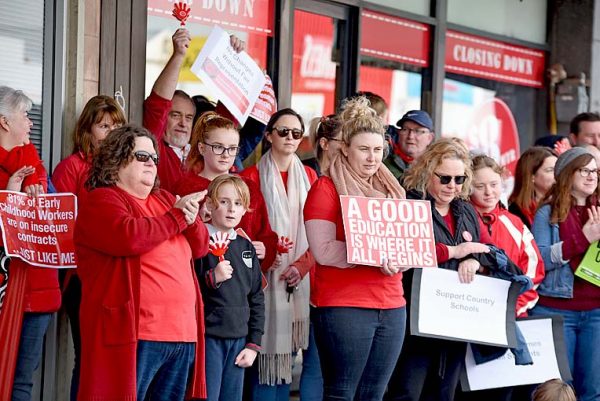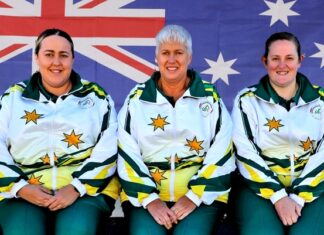
THE long-running contract dispute between the State Government and public educators has finally ended with a majority of state’s 25,000-strong teaching workforce voting in favour of the latest enterprise bargaining agreement.
Around 78pc of staff voted in favour of the new deal on Monday, which will deliver a 2.35pc annual pay rise for teachers and 3.35pc increase for principals and preschool directors over three years.
Considered a major win for the education sector was the inclusion of improved incentives to attract teachers to country areas, as well as reduced face-to-face teaching duties for principals.
A $15m annual complexity allowance will be shared among the state’s schools to help deliver improved learning outcomes for students with special needs.
This week’s announcement effectively ends the contract impasse which started in May 2018 after the workforce declined an initial offer, triggering an Australian Education Union campaign for better public education system conditions.
Limestone Coast schools were involved in two stop-work protests over the dispute’s 20-month span, both in July and September last year.
The union’s South Australian branch president Lara Golding said while the agreement was a step in the right direction, work still had to be done.
“The agreed conditions are improved when comparing to the initial offering and were won due to our members’ actions,” Ms Golding said.
Ms Golding said there were still concerns among union members about educator’s “significant” increase in workload and its impact on student learning.
“Workloads have been increasing in education over the past decade due to increased pressures from the government and expectations from the community,” Ms Golding said.
“We have managed to hold on to some important conditions, but there has been no significant decreases in class sizes and no increase in time for educators to do what is expected of them.
“We will wait and see whether it will have a positive impact, but the union will continue to fight for improved learning conditions for students and working conditions for members.”
Ms Golding said incentivising country teaching positions was important as recruitment and retention of educators in country regions – including the Limestone Coast – was critical.
“There are some small increases of improvement, but we know we need to have substantially improved incentives to make sure we all the educators we need in all country schools,” she said.
“We have managed to hold on to certain areas around recruitment, selection and democratic work place requirements which are important to us.
“Although, we will continue to be campaigning for improvements to benefit our rural community and our students.”
The South Australian union leader said she would have liked to have seen a “real acknowledgement” of the workload “forced” upon educators and its impact.
“Small and large school principals are facing huge administrative burdens and carry a huge risk while at work,” Ms Golding said.
“We need to make sure they are met with the appropriate support and enough time to do the job.
“Small school principals with face-to-face teaching requirements will have reduced allocation and will receive recognition of the huge work loads and administrative workloads they deal with thanks to the agreement.”
With public rallies and alterations to teaching hours, Ms Golding said actions taken throughout the impasse may have impacted classroom learning.
“Our members are really committed to making sure they have the best public education system that we can,” she said.
“I think members are pleased that we have been able to hold onto many of our conditions and have seen small improvements, but are keen to continue advocating for the best public education system possible.”
Treasurer Rob Lucas welcomed the result of the state-wide ballot.
“It is a strong endorsement of the government’s ongoing commitment to public education by building and retaining an expert teaching workforce,” Mr Lucas said.
“We are delighted that our state’s teachers, principals, preschool directors and support staff have voted in favour of the agreement offer, which gives exceptionally fair and reasonable salary increases and provides greater assistance and support to teachers in the classroom,” Mr Lucas said.
“This agreement supports our ambition to be the nation’s leader in education by building and retaining an expert teaching workforce.
“This result should also send a strong signal to other public sector unions that taxpayers simply cannot afford anything more than reasonable salary increases.”
The agreement – which covers the 2018/19 to 2022/23 period – will now be presented to the SA Employment Tribunal to be formalised.








